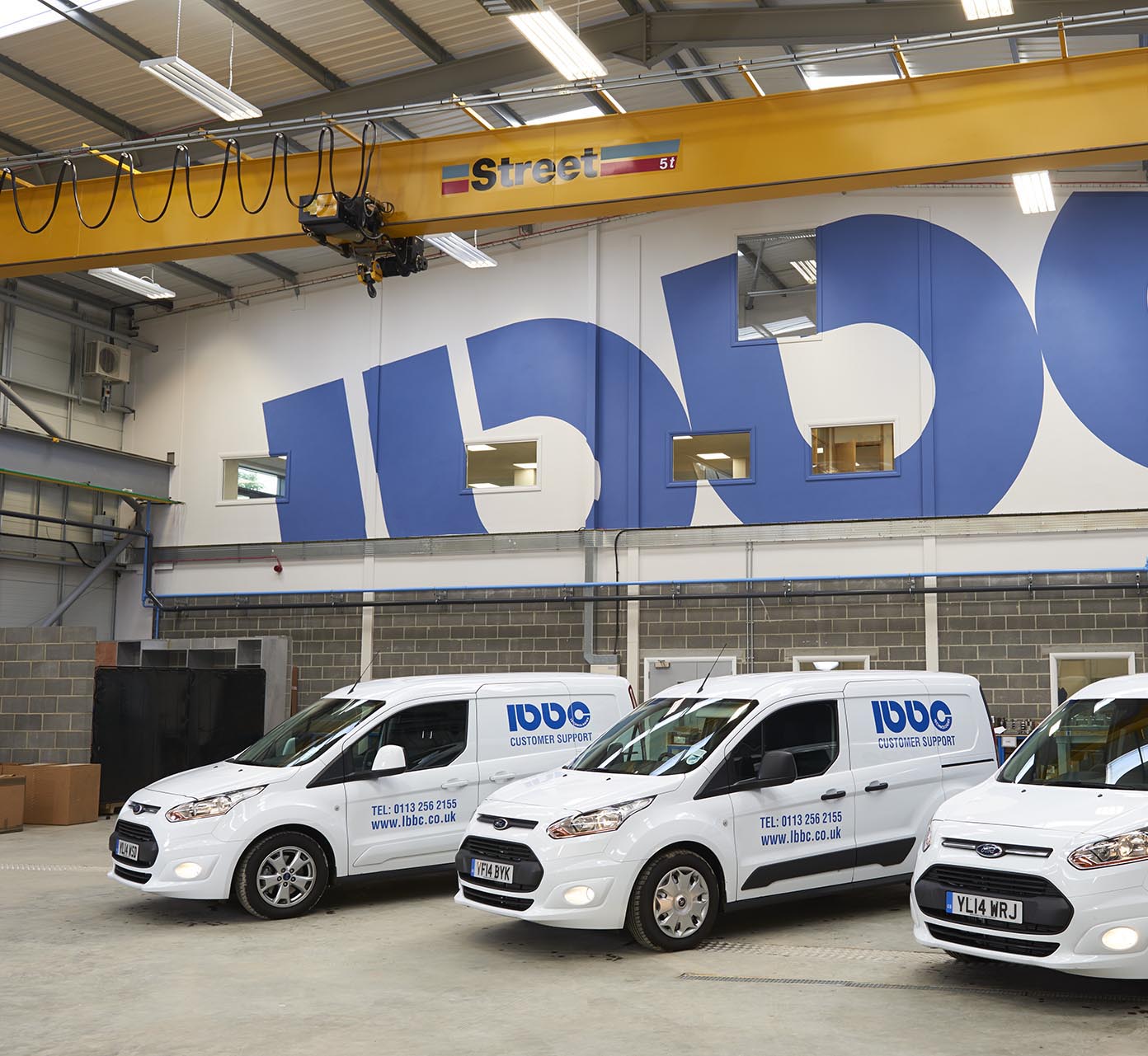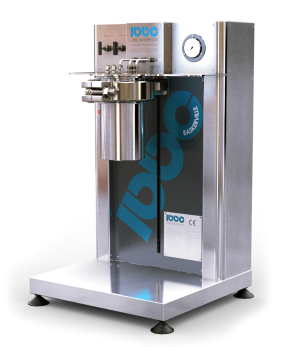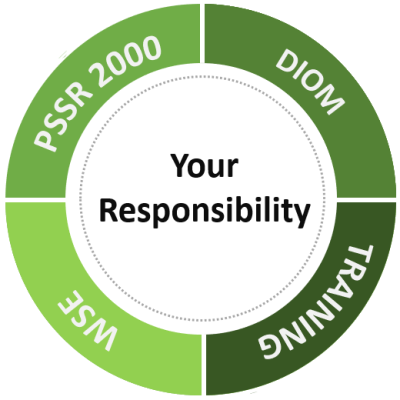Servicing and Maintenence
We are committed to delivering the best value-engineered solutions and our team of dedicated engineers will ensure your autoclaves and pressure vessels are fit for purpose and operate safely.

Servicing your Autoclaves
Your safety is our number one priority and we take it very seriously. We advise all of our customers about the importance of regular safety and maintenance checks and the risks of failing to have properly maintained equipment with accurate records. We designed our autoclave service plans with your safety in mind, to make it easy for you to comply.
The purchase of an autoclave is a long term decision and maintaining and testing pressure equipment is just as important as the initial purchase, to ensure that your equipment operates efficiently and safely with a minimum of downtime.
The Provision and Use of Work Equipment Regulations (PUWER) 1992 states that equipment must be serviced and maintained in accordance with the manufacturers’ recommendations.
We recommend routine daily and monthly maintenance and checks and a full annual service, inspection, pressure test and recertification. Our equipment is provided with comprehensive safety guidelines.


Our Service Plans
Our service plans are designed to keep your autoclave systems and pressure vessels in a safe working order. We have four suitable plans available with the purchase of any of our autoclaves.
If you have any old pressure vessels, and we are not the original equipment manufacturer then we will work with you to create a plan designed to meet your individual equipment and practice requirements.
Bronze Plan

£750
- Inspection
- Clean and Service
- Test and Recertification
Silver Plan

£1150
- Inspection
- Clean and Service
- Test and Recertification
- Spares package
- Mainenence assistance
Gold Plan

£1100 / annum
- Inspection
- Clean and Service
- Test and Recertification
- Annual Spares package
- Mainenence assistance / reminder service
Platinum Plan

(6 years minimum)
£1000 / annum
- Inspection
- Clean and Service
- Test and Recertification
- Annual Spares package
- Mainenence assistance / reminder service
Additional notes:
- Prices are based on LBBC Baskerville pressure vessels manufactured from 316/316L Stainless Steel and are subject to materials. Full autoclave systems (to include control system, sensors etc.) may come at additional costs.
- Please contact us to find out more about the details of each plan and how we can tailor a plan to suit your needs.
To service an autoclave in line with the our or the original manufacturer’s guidelines, please contact us today

Safe Contractor
LBBC holds the Safecontractor accreditation for its commitment to achieving excellence in health and safety.
Safecontractor is a leading third party accreditation scheme which recognises very high standards in health and safety management amongst UK contractors.
Maintaining your Pressure Vessels
LBBC Baskerville has a dedicated and well-resourced technical service support team offering you premium maintenance standards and emergency service engineering; to minimise disruption and down time, improve safety and boost performance.
We provide guidance on routine maintenance, daily checks (or as frequent as you test), monthly checks, and annual checks and testing.
Our spares package, aims to provide the user with enough spare parts to allow the buyer to maintain the equipment, based on our recommendations, for the first two years from purchase.
Training for you and your colleagues
The LBBC Baskerville Technical Support team can provide training to you and your engineers/researchers to ensure you maximise your autoclave technology and to ensure all approved users can be nominated as a ‘Competent Person’ for using and assessing pressure equipment in accordance with Pressure Systems Safety Regulations 2000 (PSSR 2000). Training will be included on preparing and reporting on Written Scheme of Examinations prior to using your equipment.
Advisory Notes
As the user and/or owner of pressure vessels and autoclaves, you have a responsibility to maintain a safe working environment.

Pressure Systems Safety Regulations 2000:
The Pressure Systems Safety Regulations 2000 (PSSR) cover the safe design and use of pressure systems. The aim of PSSR is to prevent serious injury from the hazard of stored energy (pressure) as a result of the failure of a pressure system or one of its component parts.
Written Scheme Of Examination (WSE):
Under PSSR 2000 the responsibility for identifying pressure vessels and the associated protective devices and ensuring their inclusion in the scope of the WSE rests with the user/owner. Once the scope has been established it is then the responsibility of the competent person to certify that the content (including the extent and frequency of examination) of the WSE is suitable. In practice, the user/owner may nominate one of our engineers at LBBC Baskerville as the competent person and can request advice from the competent person as to which items should be included in the scope and to draw up the WSE.
Equipment Design, Installation, Operation & Maintenance (DIOM):
All of our Operating and Maintenance manuals provide comprehensive guidance on the design, use, installation, and maintenance of our equipment. Fundamentally, it is the responsibility of the user/owner to ensure the following:
- The correct information is provided on the intended use and application
- Design is suitable for your requirements (we will advise based on the information you provide)
- Safe Operating Limits
- Installation
- Written Scheme of Examination
- Correct operation procedures
- Adequate user training
- Maintenance procedures and records
- Keeping of records
- Provide a safe working environment

User Training:
User training is of paramount importance. ONLY competent persons can use pressure equipment and in-depth training should be provided to any person operating our (or any other) pressure vessels and autoclaves.
Frequently Asked Questions
If you have any other questions that are not answered below, please call us on +44 (0) 113 205 7413 or send us an email [email protected].
The majority of manufacturers recommend a service every 12 months, however some practices have them as often as once a quarter. We recommend an annual service every 12 months providing the equipment has been well maintained.
It usually takes around half a day to service on an Autoclave depending on the condition of the critical components (vessel, vessel cover, sealing faces, valves, threads etc)
For our smaller vessels, it is sometimes easier and cheaper to send the equipment back to us rather than sending an engineer to your site. General inspection, cleaning and servicing can take place at your site but we usually prefer to have the vessels back to perform checks and pressure test at our facilities.
All inspections will include a non-destructive examination (such as dye penetration) and if significant wear and corrosion is discovered, we will skim the damaged parts in very small increments and electropolish the entire system. We will then provide a new set of calculations and recertify your vessel.
During a Service Plan, we usually cover the following:
- Check serial number and specification
- Open vessel through removing vessel clamp and cover
- Inspect ALL wetted parts exposed to the corrosive media for any signs or corrosion, partially paying close attention to forms of localised corrosion.
- Inspect all electrical wiring and pressure connections for excessive corrosion. Suspect parts will be replaced by components only supplied by LBBC Baskerville.
- Check test valve porting for blockages.
- Check Safety Relief Valve porting for blockages and replace where necessary, consult LBBC Baskerville if manually replacing seals or springs.
- Inspect control system wiring for signs of loose connections.
- Check control system fan for correct operation. Inspect fan and outlet filter(s) for signs of deterioration periodically clean or replaced to ensure dust and dirt doesn’t build up inside the control system which can affect the operation of electronic equipment.
- Check over pressure and temperature alarm units for correct setting and operation.
- Check all sensor readings on gauges and displays, adjust readings where required.
- Inspect all tubing for signs of wear or leaks, replace where necessary
- Check the vessel sealing operation, re-seal or replace where necessary.
- Check the vessel cover operation is smooth and locking mechanism operates correctly. Inspect the split clamp pieces, compression ring, and bolts for wear, damage and clean parts where necessary.
- Check Clamp Bolts condition and treat with anti-seize compound.
- Check all tubing, fittings and unions are secure and free from leaks.
- Clean out vessel surfaces (internal and external) and flush cleaning products through the entire system leaving the outlet valve open.
- The heater will be inspected and tested for insulation breakdown and voltage leakage, which can lead to arcing on the cylinder wall.
- Annual Pressure Gauge calibration may be required for in-house assurance and insurance purposes.
- Annual hydraulic testing may be required for in-house assurance and insurance purposes.
Bronze (£750)
Silver (£1150)
Gold (£1100 / year)
Platinum (£1000 / year)
All of pressure vessels are supplied with a spares package and a comprehensive manual and guidance on maintenance to keep the equipment in a safe working order for a minimum of 12 months. By law, due to our recommendations, you are required to maintain and service your high pressure equipment to keep you and any users/laboratory staff safe, just like an MOT for a car! You do not have to purchase one of our plans, as long as you make alternative arrangements and keep records of your maintained, and serviced equipment.
As an owner OR user, in the simplest form, it is your responsibility to ensure the safety of you and anyone using or in close proximity of the equipment. You and all users will need to be fully trained, competent and aware of the risks of using high pressure equipment. As a minimum, you should thoroughly read through the OEM Operating and Maintenance manuals and guidance, the PSSR 2000 and Guidance Note PM73(rev3) Safety Requirements for Autoclaves. In addition to this, it is your responsibility to ensure the vessel has been designed to suit your testing requirements, ensure safe operating limits and working area, ensure correct installation and operation, and above all, ensure the equipment is safe to use (through correct maintenance and servicing plans).
You can send your equipment to the following address for inspoectiopom, servicing and repair:
LBBC Baskerville Attn: Service Department
Beechwood Street, Stanningley, West Yorkshire, LS28 6PT, UK
As designers and manufacturers of autoclave equipment for over 100 years you can rely on LBBC to provide global distribution for spares of your autoclave equipment.